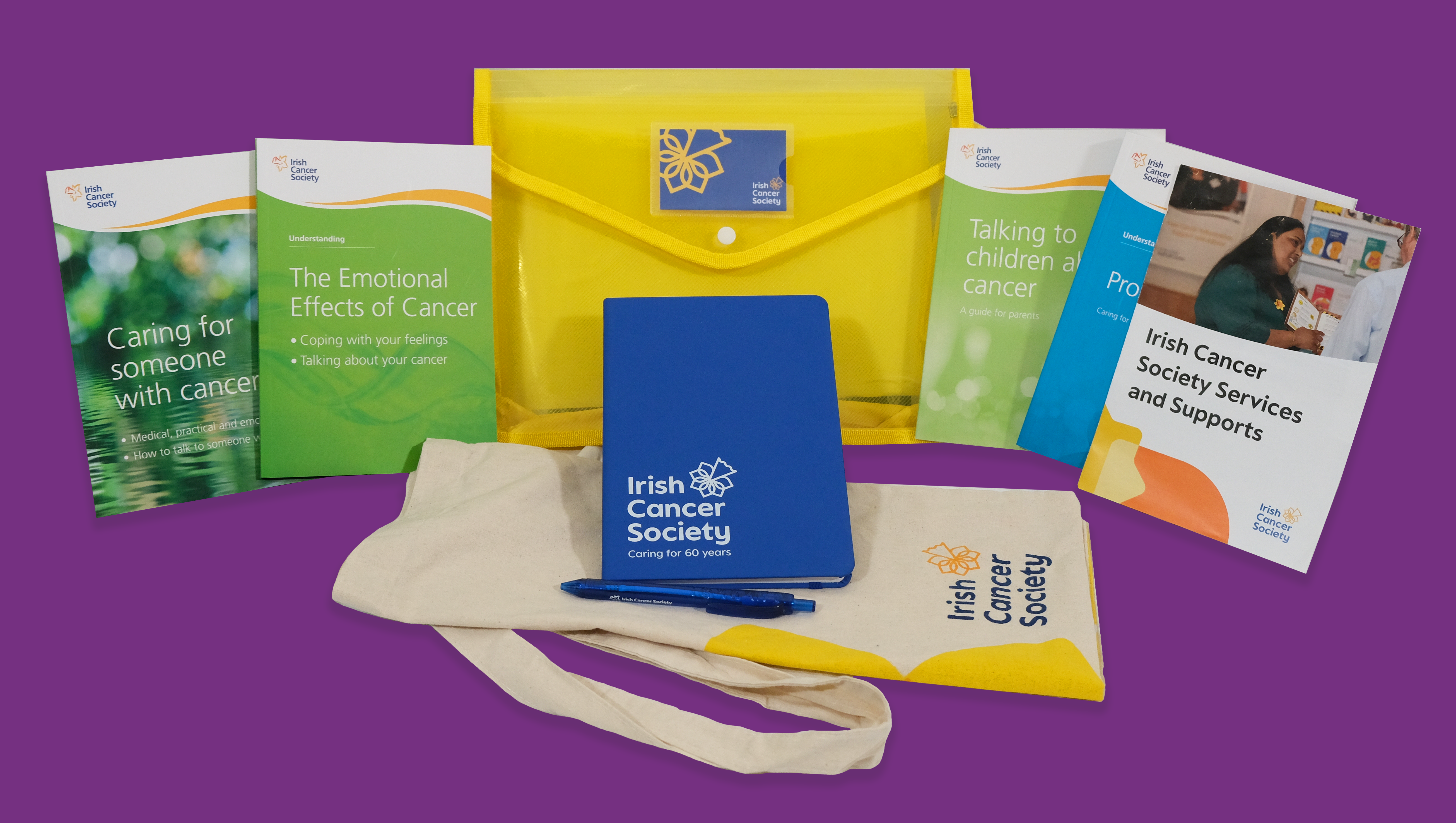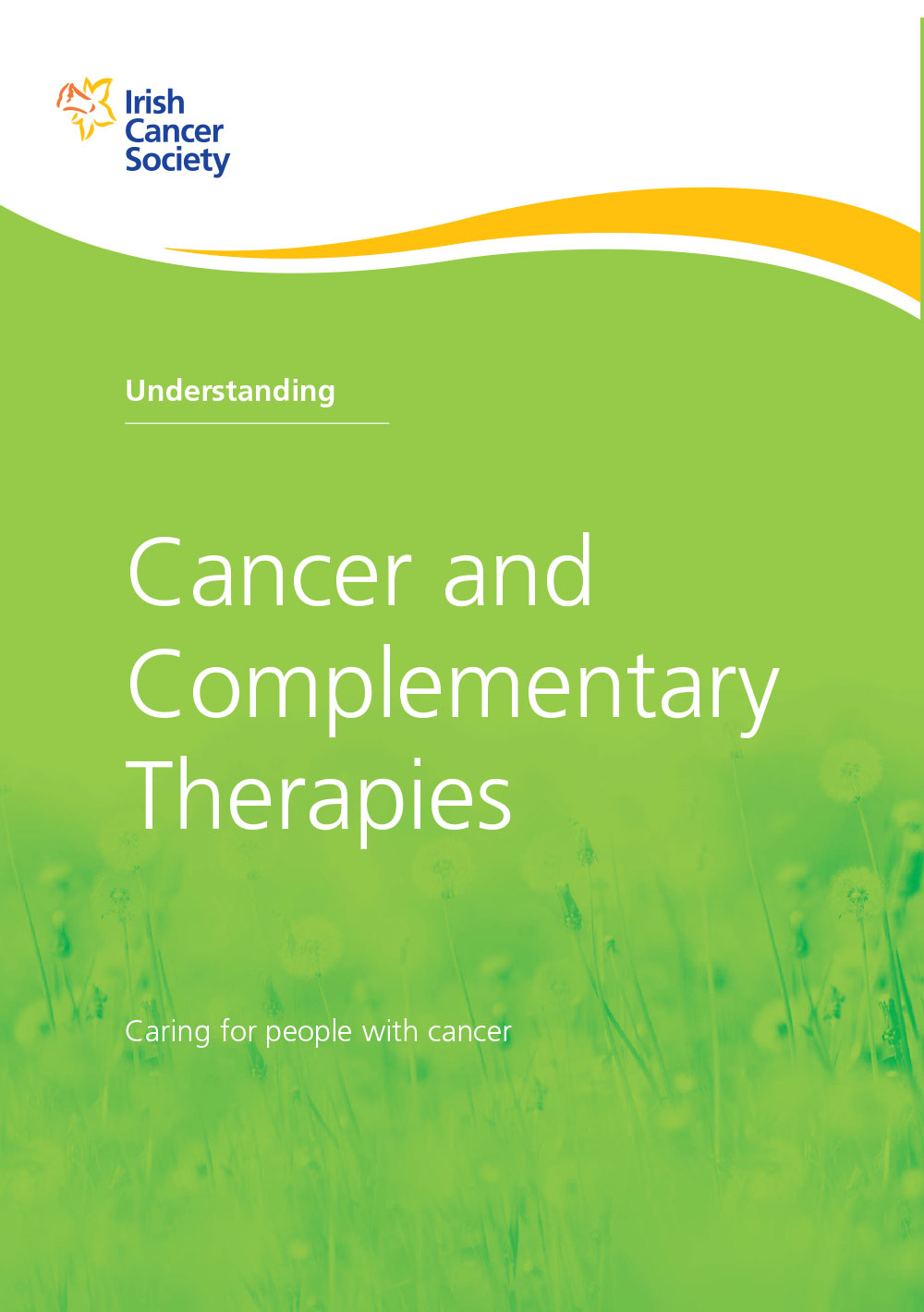Cancer and complementary therapies
Advice and information on treatments and activities that go along with standard medical treatments for cancer.
What are complementary therapies?
Complementary therapies are treatments and activities that you can have or do along with your standard medical treatment to try to feel better. For example, acupuncture, aromatherapy and yoga.
It's very important to talk to your doctor if you're thinking of using a complementary therapy, even if you used it safely before your treatment. Your doctor can tell you if it is safe to use along with your treatment.
Why do people use complementary therapies?
Some people say that certain complementary therapies can help them to feel more relaxed and better able to cope with their cancer and the side-effects of treatment. For example:
- Coping with anxiety: Hypnosis, massage, yoga, meditation, relaxation techniques, mindfulness
- Coping with fatigue: Exercise, massage, relaxation techniques, mindfulness, yoga
- Nausea and vomiting: Acupuncture, aromatherapy, massage, hypnosis, music therapy
- Coping with pain: Acupuncture, aromatherapy, hypnosis, massage, music therapy
- Problems sleeping: Exercise, relaxation techniques, mindfulness, yoga
- Reducing stress: Aromatherapy, exercise, hypnosis, massage, meditation, tai chi, yoga
What’s the difference between complementary therapies and alternative therapies?
- Complementary therapies. Complementary therapies are used together with standard medical treatments, such as chemotherapy or surgery to remove a tumour.
- Alternative therapies. Alternative therapies are used instead of standard medical care. There’s no scientific proof that alternative therapies work to treat cancer. More importantly, they may not be safe.
Frequently asked questions about complementary and alternative therapies
Natural doesn’t mean safe. Using a product that hasn’t been through proper clinical trials can be dangerous.
Doctors use standard treatments like surgery and chemotherapy because they have been scientifically proven as the best and most effective treatments against cancer.
‘Natural’ products like plants and herbs may:
- Have serious side-effects
- Damage your health
- Cause dangerous interactions with other medications
There’s a lot of information about complementary and alternative therapies, especially online. It can be hard to make sense of it. The best thing to do is to ask a doctor for advice or to recommend websites with information you can trust.
You can also ask our cancer nurses:
- Call our Support Line on Freephone 1800 200 700
- Email the nurses supportline@irishcancer.ie
- Visit a Daffodil Centre
We also have some tips on making sense of health claims and getting cancer information.
We don’t support using alternative therapies. Here’s why:
- There’s no scientific proof that they work.
- They may not be safe.
- Choosing an unproven alternative may mean you miss out on a standard treatment that may help you.
Complementary therapies can’t treat or cure cancer.
Standard medical treatments are now very effective at controlling and often curing cancer, and side-effects are better managed now. Choosing an unproven alternative may mean you miss out on a standard treatment that will help you.
Related links



Talk to a Cancer Nurse

Support Line
Our Daffodil Centres


